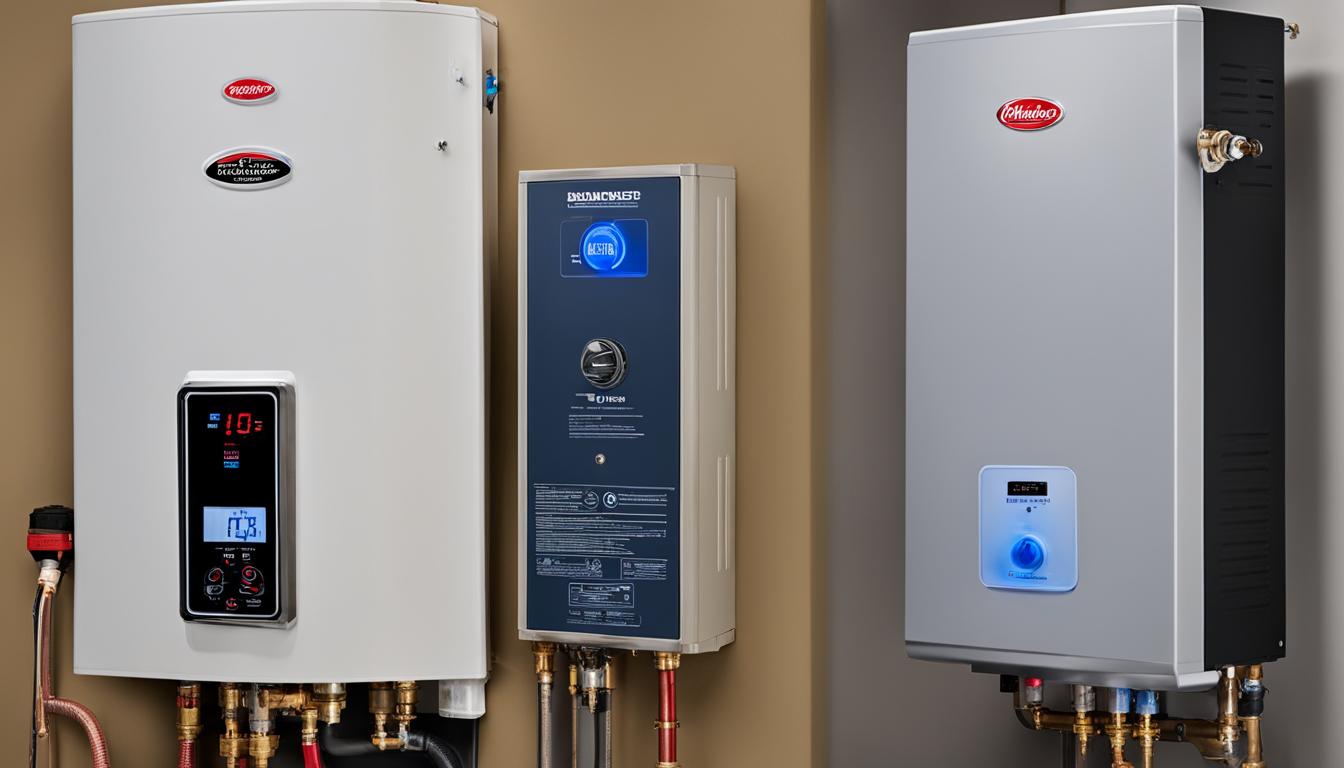Home Improvement
advantages, benefits of tankless water heaters, cost savings, efficiency, electric tankless water heater, electric water heater advantages, endless hot water, energy efficiency, home improvement, installation, low maintenance water heater, space-saving design, water heater comparison, water heater installation
Mohammad Noman
0 Comments
Why Should You Invest in an Electric Tankless Water Heater?
Are you tired of waiting for hot water to fill up your bathtub or wondering why your energy bills are so high? It might be time to consider investing in an electric tankless water heater. In this article, we will dive into why these nifty devices could be a great addition to your home, and how they might just make your life a little easier and a lot more efficient.
What is an Electric Tankless Water Heater?
Imagine a water heater that’s small, efficient, and heats water only when you need it. That’s basically what an electric tankless water heater does. Unlike traditional water heaters that store a large amount of hot water in a big tank, a tankless water heater heats water directly as it flows through the unit. It doesn’t keep a reserve of hot water; instead, it warms up the water on-demand.
So, when you turn on the tap, the water heats up instantly and flows out. This means you never have to worry about running out of hot water, and it can save you space since it’s much smaller than the traditional tank models.
How Does It Work?
To put it simply, an electric tankless water heater uses electricity to heat water as it passes through the unit. When you turn on the hot water tap, cold water flows into the heater. Inside, there are heating elements that warm up the water quickly. This hot water then travels through your pipes and comes out of your faucet or showerhead. It’s like magic, but with a little help from modern technology!
Benefits of Electric Tankless Water Heaters
1. Endless Hot Water
One of the biggest perks of an electric tankless water heater is that you’ll never run out of hot water. Traditional water heaters have a tank that holds a set amount of hot water. Once that’s used up, you have to wait for the tank to refill and reheat. With a tankless system, you get hot water whenever you need it because the water is heated on the spot. Whether you’re taking a long shower or running multiple taps, you’ll always have a steady supply of hot water.
2. Energy Efficiency
Tankless water heaters are much more energy-efficient compared to their tank counterparts. Since they only heat water when you need it, they don’t waste energy keeping a large tank of water hot all the time. This can lead to significant savings on your energy bills. Imagine not having to pay for energy used to keep gallons of water hot 24/7. It’s a great way to be kinder to your wallet and the environment.
3. Space-Saving Design
Traditional water heaters can take up a lot of space, often requiring a dedicated closet or area in your home. Tankless water heaters are compact and can be mounted on a wall, freeing up space that can be used for other purposes. If you’re short on space or just want a tidier look, a tankless model can help you achieve that.
4. Long-Term Cost Savings
While the initial cost of a tankless water heater might be higher than a traditional tank model, it can lead to long-term savings. The energy efficiency means lower utility bills, and many tankless models have a longer lifespan compared to tank heaters. With proper maintenance, a tankless water heater can last up to 20 years, which is a big plus if you’re looking for a long-term investment.
5. Reduced Risk of Leaks and Water Damage
Traditional water heaters are prone to leaks and, over time, the tanks can corrode or rust. This can lead to water damage in your home if not addressed promptly. Tankless water heaters, on the other hand, have no large tank of water that can leak. This means there’s a lower risk of water damage, which can save you from costly repairs and headaches.
Installation and Maintenance
1. Easy Installation
Installing an electric tankless water heater can be a relatively straightforward process, especially if you’re replacing an old water heater with a new one. However, it’s always best to have a professional plumber or electrician handle the installation to ensure everything is set up correctly and safely. They can help you choose the right size unit for your home and make sure it’s installed properly.
2. Low Maintenance
Tankless water heaters require less maintenance compared to traditional water heaters. There are no tanks to flush or anodes to replace. However, you should still have your unit checked regularly to ensure it’s working efficiently. Descaling the unit periodically can help keep it in top shape, especially if you have hard water.
Things to Consider Before Buying
1. Size and Flow Rate
When choosing an electric tankless water heater, consider the size and flow rate you need. The flow rate, measured in gallons per minute (GPM), indicates how much hot water the unit can provide at once. Make sure the unit you choose can handle the peak demand in your home, whether it’s multiple showers running at the same time or a large bathtub.
2. Electricity Requirements
Electric tankless water heaters require a significant amount of electricity to operate. Ensure that your home’s electrical system can handle the additional load. You might need to upgrade your electrical panel or wiring, so it’s important to consult with a professional to determine your home’s capacity.
3. Cost vs. Savings
While tankless water heaters can save you money in the long run, it’s important to weigh the initial cost against potential savings. Look at the long-term benefits and how they align with your budget. Sometimes, rebates or incentives can help offset the initial cost, so be sure to check for any available programs.Also visit here Exploring the Different Types of Nail Polish
Conclusion
Investing in an electric tankless water heater is a smart move for many homeowners. With benefits like endless hot water, energy efficiency, and space-saving design, it’s easy to see why these units are becoming more popular. They offer long-term savings and a reduced risk of water damage, making them a worthwhile investment. If you’re considering upgrading your water heating system, a tankless model might just be the perfect choice for your home.
Share this content:














Post Comment